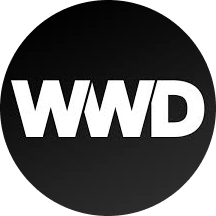Prime Minister Mark Carney is preparing for the upcoming October budget amid significant challenges. He recently described the budget as one of "austerity and investment," a characterization that has raised concerns among Canadians. A poll by David Coletto at Abacus Data revealed that the term "austerity" carries negative connotations for nearly twice as many people in Quebec compared to those who view it positively. Nationally, the sentiment is less pronounced, with 23% viewing it positively, 57% neutral, and 20% negatively.
Carney has acknowledged that the upcoming deficit will be "substantial," indicating it will exceed last year's figure. The projected deficit for 2024/25 has been revised from $39.8 billion to $46 billion. Factors contributing to this increase include a tariff war, support for affected workers, heightened defense spending, and new initiatives like the Canada Homes announcement made in Ottawa.
The Liberal platform had anticipated $35 billion in new spending this fiscal year, along with an additional $9 billion for defense. However, expected tariff revenue of $20 billion may fall short due to the cancellation of retaliatory duties on U.S. imports. Other revenue sources are also likely to underperform, partly due to a $4 billion income tax cut and the repeal of the consumer carbon tax and higher capital gains tax inclusion rate. The C.D. Howe Institute has suggested that the deficit could potentially double the revised figure of $46 billion.
As the House of Commons reconvenes, Carney appears to be in a relatively strong position. Recent polling indicates that the Liberal Party holds a significant lead, with Ipsos reporting that 60% of voters approve of the government's performance, marking a nine-year high. Interestingly, one-third of Conservative voters also express approval. Despite criticism from some quarters, progressive voters have limited alternatives due to the current disarray within the NDP.
Carney is polling favorably among centrist voters, with a recent survey showing an eight-point gap between the Liberal and Conservative parties. When asked to choose between a Carney-led government and one led by Conservative leader Pierre Poilievre, the gap widened to 22 points in favor of Carney.
In a shift from previous rhetoric, Poilievre acknowledged that Conservatives want the country to succeed. He noted that the party had supported the government's middle-class tax cut and the One Canadian Economy Act earlier this year. However, he emphasized the need to hold Carney accountable for his promises, asking, "Do the words match the deeds?"
The atmosphere in the House of Commons was notably cordial as it resumed for the fall session. Poilievre even thanked Carney for facilitating a by-election that allowed his return to Parliament, joking about whether Carney might regret that decision.
Carney, who has been in office for just 21 days, remains composed. He stated, "If we are going to build the strongest economy in the G7, we need to be clear on the scale of the crisis we are in." Polls indicate that Canadians recognize the political challenges facing the country.
While Poilievre may struggle to convince his supporters that Carney has failed, the Prime Minister must provide regular updates on progress. Failure to do so could lead to perceptions that he has overpromised and underdelivered. Having previously led the Bank of Canada during the Great Recession, Carney understands that economic growth cannot be achieved solely through spending cuts.
As noted by author Mark Blyth, austerity can be counterproductive, potentially harming growth more than it helps. However, former U.S. Treasury Secretary Lawrence Summers pointed out that Canada in the 1990s successfully offset reduced government demand with increased exports, which in turn spurred investment and confidence. Carney has the mechanisms for borrowing and spending in place, but whether this will foster the necessary confidence remains uncertain.

 Canada News
Canada News

 The Timmins Times
The Timmins Times National Post
National Post Local News in Ontario
Local News in Ontario Newsweek Top
Newsweek Top CNN Business
CNN Business The Federick News-Post
The Federick News-Post Raw Story
Raw Story The US Sun Health
The US Sun Health 14 News Sports
14 News Sports Women's Wear Daily Lifestyle
Women's Wear Daily Lifestyle